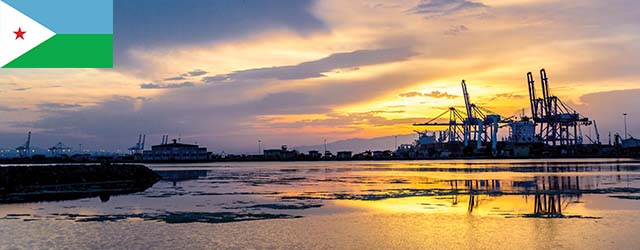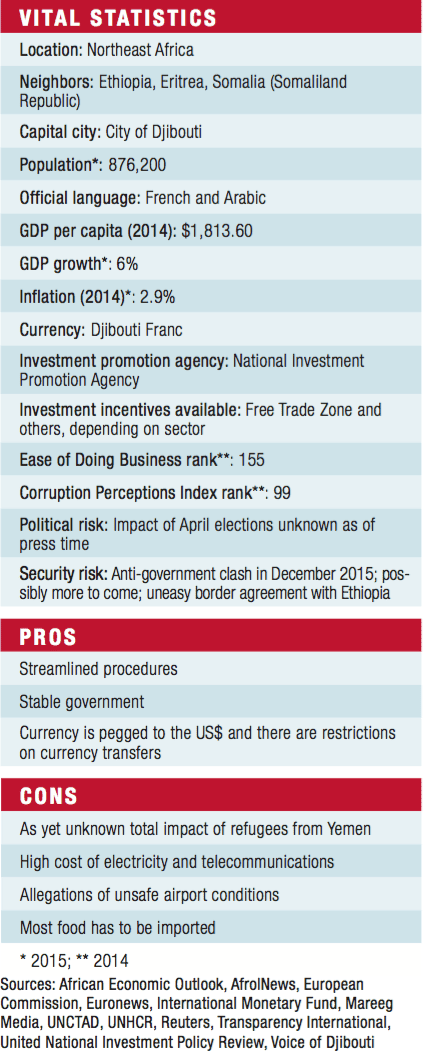Djibouti is a small country with ambitious plans, which it hopes to achieve by attracting large amounts of foreign direct investment.


During an interview with a Middle Eastern publication last year, Ilyas Dawaleh, Djibouti’s minister of Economy and Finance, said he wanted to make his country the Dubai of Africa. That would mean increasing Djibouti’s stature as a regional financial, shipping and logistical hub.
Various economic drivers have allowed Dubai and other small countries, such as Singapore and Qatar, to achieve economic success beyond their size. Whether the tiny nation on the Horn of Africa gains membership in the club partially depends on its ability to attract foreign direct investment.
Djibouti’s economy “remains weakly diversified, with a predominantly informal sector,” according to the African Development Bank. Much of its income derives from the strategic importance of its location on the Bab el-Mandeb Strait: Its port is a gateway to the Suez Canal and the Red Sea, generating significant revenue and providing employment. Its relative stability, compared to neighboring countries, attracted the American and French military bases—and the important rents and employment they generate.
Djibouti welcomes foreign direct investment, according to Maria Knapp, director, and Patrick Matu, senior consultant, East Africa, both from Control Risks, a consultancy. “In all formal aspects [it has] a very liberal economy,” Knapp says.
Many FDI opportunities flow from the port and future plans to capitalize on Djibouti’s ability to provide shipping facilities, especially for landlocked Ethiopia. Projects under discussion involve moving shipments from Ethiopia to the Djibouti port.
“As Ethiopia continues to grow, it uses the port more and more,” explains Matu.
However, the FDI environment has some sobering realities, including the downside of the centralized nature of the economy. “When I say centrally-driven, I mean by the president’s office,” Knapp says. “[There is] a very small group of commercial elites in Djibouti who happen to intermingle and overlap significantly with the political elites.”
Major projects are formally or informally signed off by the president. Dealing with this makes close contact with the authorities a crucial element of successful negotiations and may make a joint venture or partnership with a local entity advisable. Moreover, clan politics play a role, and the dominant clan commercially is that of the First Lady, with links to Somaliland—an important consideration in cross-border transactions.
The limited transparency complicates investment decisions. “There is an issue around improving transparency in Djibouti. At the moment it is very difficult to see where there may be politically vested interests,” Knapp warns. “It’s difficult to [sort out] where public officials or relatives of public officials may have an interest in the commercial sphere.”
Depending on the sector and size of the project, the process may involve assurances by the foreign direct investor to provide opportunities for local employees. Moreover, China’s decision to build a logistics facility there could change the environment and affect the approach taken by other investors.
Djibouti also has a refugee crisis. An estimated 18,000 Somalian refugees and 30,000 Yemeni refugees had arrived as of November 2015, but the government has no plan to deal with the influx. Other risks include corruption, inefficiency and lack of independence of institutions such as the judiciary.
“That is something that an investor has to keep in mind and be aware of,” Matu advises.



